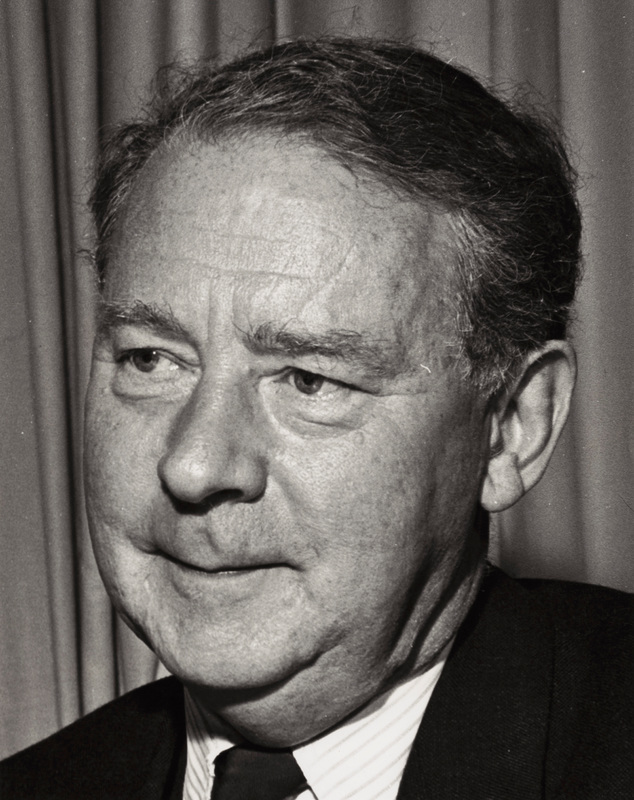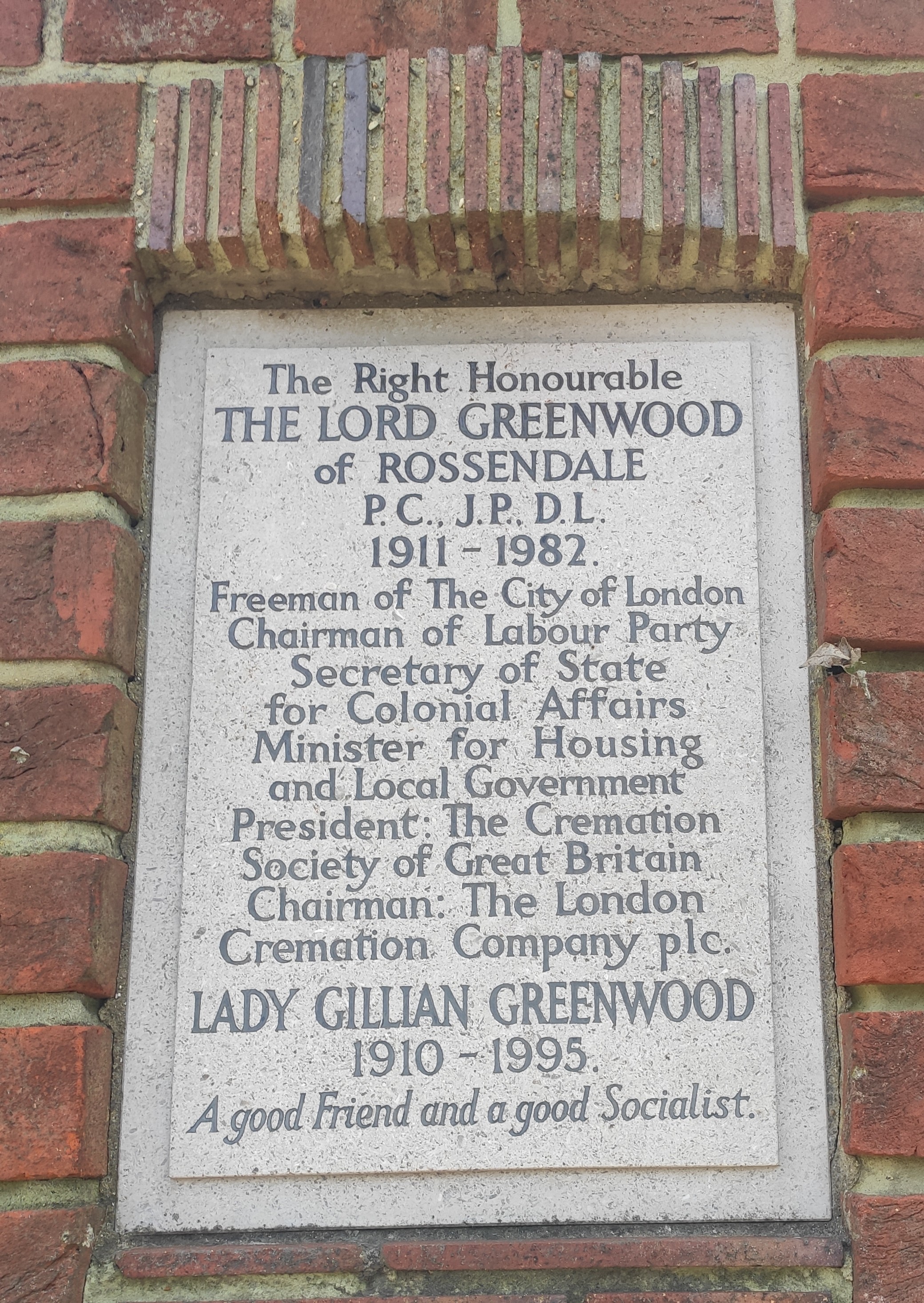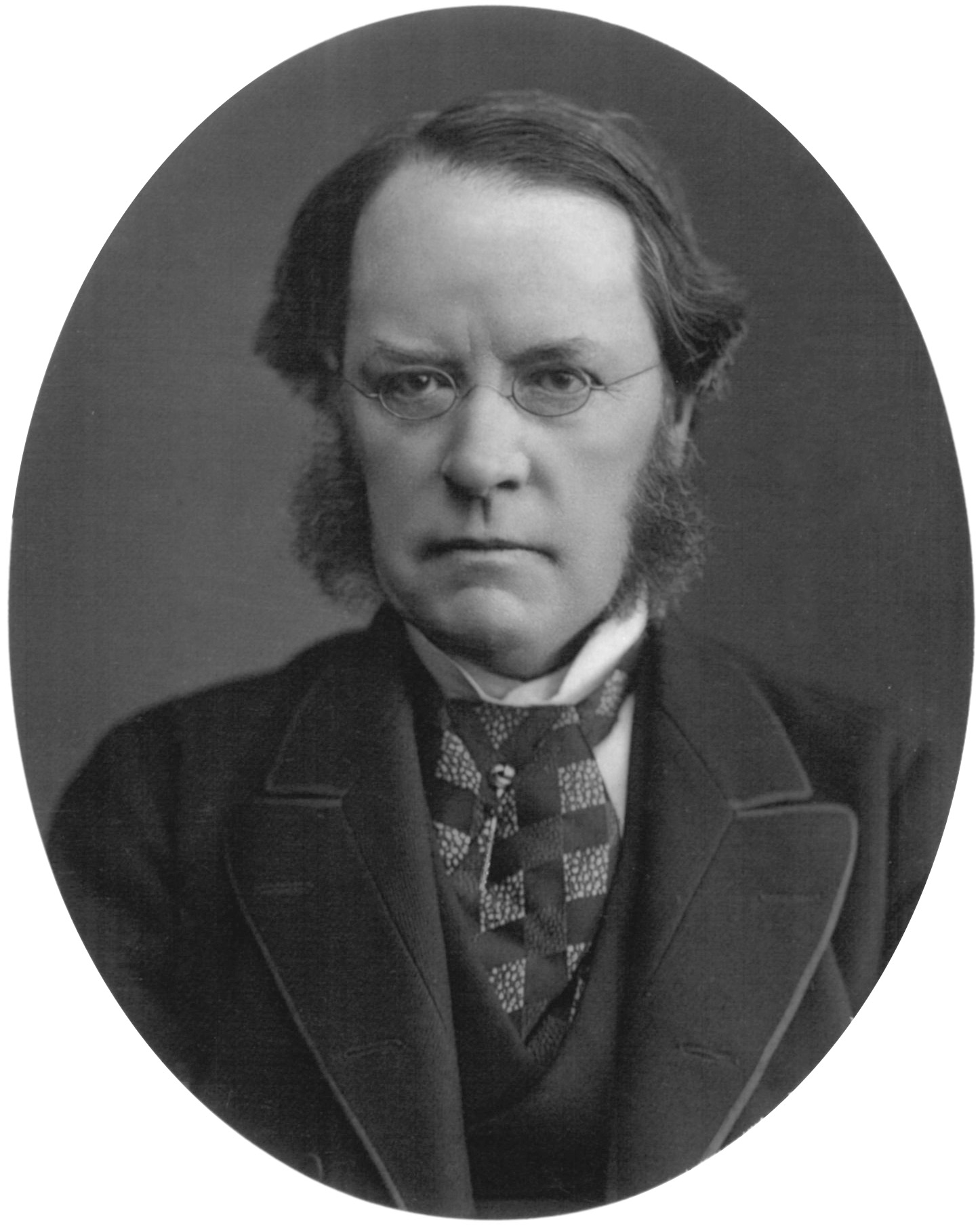|
1961 Labour Party Leadership Election
The 1961 Labour Party leadership election was held when, for the second year in succession, the incumbent leader was challenged for re-election. Normally the annual re-election of the leader had been a formality. The challenge followed factional in-fighting over issues like nuclear disarmament. The leader favoured the retention of nuclear weapons by the UK, whereas the left wing of the party supported the Campaign for Nuclear Disarmament. Candidates Two candidates were nominated. # The left-wing candidate the previous year had been Harold Wilson. In 1961 the candidate was a less well-known political figure, Tony Greenwood (1911–1982), then MP for the Lancashire constituency of Rossendale. He had been an MP since 1946 and was the son of Arthur Greenwood (1880–1954), who had been a Labour leadership candidate in 1935. # The incumbent right-wing leader of the party was Hugh Gaitskell (1906–1963), who had been Chancellor of the Exchequer in 1950–51. Gaitskell had been MP ... [...More Info...] [...Related Items...] OR: [Wikipedia] [Google] [Baidu] |
Hugh Gaitskell
Hugh Todd Naylor Gaitskell (9 April 1906 – 18 January 1963) was a British politician who served as Leader of the Labour Party and Leader of the Opposition from 1955 until his death in 1963. An economics lecturer and wartime civil servant, he was elected to Parliament in 1945 and held office in Clement Attlee's governments, notably as Minister of Fuel and Power following the bitter winter of 1946–47, and eventually joining the Cabinet as Chancellor of the Exchequer. Facing the need to increase military spending in 1951, he imposed National Health Service charges on dentures and spectacles, prompting the leading left-winger Aneurin Bevan to resign from the Cabinet. The perceived similarity in his outlook to that of his Conservative Party counterpart Rab Butler was dubbed "Butskellism", initially a satirical term blending their names, and was one aspect of the post-war consensus through which the major parties largely agreed on the main points of domestic and foreign policy ... [...More Info...] [...Related Items...] OR: [Wikipedia] [Google] [Baidu] |
Tony Greenwood, Baron Greenwood Of Rossendale
Arthur William James Anthony Greenwood, Baron Greenwood of Rossendale, (14 September 1911 – 12 April 1982) was a prominent British Labour Party politician in the 1950s and 1960s. Background and education The son of Arthur Greenwood ( Deputy Leader of the Labour Party under Clement Attlee) and his wife Catherine Ainsworth, Greenwood was born in Leeds and educated at Merchant Taylors' School, and then read politics, philosophy and economics at Balliol College, Oxford, where he held the posts of chairman of the Labour Club and, in 1933, president of the Oxford Union. In 1933 he visited India as a member of the British Universities' Debating Team. Early life After university Greenwood continued with political work, which included debating trips to the USA and some freelance journalism. He began, but did not complete, studies for the Bar at the Middle Temple. Early employment consisted of a spell as economic secretary to an industrialist and then, in 1938–39, work for the ... [...More Info...] [...Related Items...] OR: [Wikipedia] [Google] [Baidu] |
Campaign For Nuclear Disarmament
The Campaign for Nuclear Disarmament (CND) is an organisation that advocates unilateral nuclear disarmament by the United Kingdom, international nuclear disarmament and tighter international arms regulation through agreements such as the Nuclear Non-Proliferation Treaty. It opposes military action that may result in the use of Nuclear weapon, nuclear, Chemical warfare, chemical or Biological warfare, biological weapons and the building of nuclear power stations in the UK. CND began in November 1957 when a committee was formed, including Canon John Collins as chairman, Bertrand Russell as president and Peggy Duff as organising secretary. The committee organised CND's first public meeting at Methodist Central Hall, Westminster, on 17 February 1958. Since then, CND has periodically been at the forefront of the peace movement in the UK. It claims to be Europe's largest Single-issue politics, single-issue peace campaign. Between 1958 and 1965 it organised the Aldermaston Marches, Al ... [...More Info...] [...Related Items...] OR: [Wikipedia] [Google] [Baidu] |
Harold Wilson
James Harold Wilson, Baron Wilson of Rievaulx, (11 March 1916 – 24 May 1995) was a British politician who served as Prime Minister of the United Kingdom twice, from October 1964 to June 1970, and again from March 1974 to April 1976. He was the Leader of the Labour Party from 1963 to 1976, and was a Member of Parliament (MP) from 1945 to 1983. Wilson is the only Labour leader to have formed administrations following four general elections. Born in Huddersfield, Yorkshire, to a politically active middle-class family, Wilson won a scholarship to attend Royds Hall Grammar School and went on to study modern history at Jesus College, Oxford. He was later an economic history lecturer at New College, Oxford, and a research fellow at University College, Oxford. Elected to Parliament in 1945 for the seat of Ormskirk, Wilson was immediately appointed to the Attlee government as a Parliamentary Secretary; he became Secretary for Overseas Trade in 1947, and was elevated to the ... [...More Info...] [...Related Items...] OR: [Wikipedia] [Google] [Baidu] |
Lancashire
Lancashire ( , ; abbreviated Lancs) is the name of a historic county, ceremonial county, and non-metropolitan county in North West England. The boundaries of these three areas differ significantly. The non-metropolitan county of Lancashire was created by the Local Government Act 1972. It is administered by Lancashire County Council, based in Preston, and twelve district councils. Although Lancaster is still considered the county town, Preston is the administrative centre of the non-metropolitan county. The ceremonial county has the same boundaries except that it also includes Blackpool and Blackburn with Darwen, which are unitary authorities. The historic county of Lancashire is larger and includes the cities of Manchester and Liverpool as well as the Furness and Cartmel peninsulas, but excludes Bowland area of the West Riding of Yorkshire transferred to the non-metropolitan county in 1974 History Before the county During Roman times the area was part of the Bri ... [...More Info...] [...Related Items...] OR: [Wikipedia] [Google] [Baidu] |
Rossendale (UK Parliament Constituency)
Rossendale was a parliamentary constituency in the Lancashire, England. Created in 1885, it elected one Member of Parliament (MP) to the House of Commons of the Parliament of the United Kingdom, elected by the first-past-the-post voting system. When created it comprised the districts of Rawtenstall, Bacup, and Haslingden; Ramsbottom district was added to the constituency in 1950. The constituency ceased to exist with the implementation of the 1983 boundary changes and was replaced by the Rossendale and Darwen constituency. The exact nature of the changes were as follows: 9,882 electors of the Rossendale seat were transferred to Bury North. 25,918 electors were added from the abolished Darwen constituency and 5,267 from Heywood and Royton. Boundaries 1885–1918: The Sessional Division of Rossendale, and part of the Borough of Bacup. 1918–1950: The Boroughs of Bacup, Haslingden, and Rawtenstall. 1950–1983: The Boroughs of Bacup, Haslingden, and Rawtenstall, and the Urban D ... [...More Info...] [...Related Items...] OR: [Wikipedia] [Google] [Baidu] |
Arthur Greenwood
Arthur Greenwood, (8 February 1880 – 9 June 1954) was a British politician. A prominent member of the Labour Party from the 1920s until the late 1940s, Greenwood rose to prominence within the party as secretary of its research department from 1920 and served as Parliamentary Secretary to the Ministry of Health in the short-lived Labour government of 1924. In 1940, he was instrumental in resolving that Britain would continue fighting Nazi Germany in World War II. Early life Greenwood was born in Hunslet, Leeds, the son of a painter and decorator. He was educated at the Yorkshire College (which later became the University of Leeds), where he took a BSc. Political career Greenwood was first elected to the House of Commons at the 1922 general election for the constituency of Nelson and Colne in Lancashire. He held the seat until being defeated at the 1931 election, but returned to Parliament the following year, winning a by-election in the Yorkshire constituency of Wakef ... [...More Info...] [...Related Items...] OR: [Wikipedia] [Google] [Baidu] |
Chancellor Of The Exchequer
The chancellor of the Exchequer, often abbreviated to chancellor, is a senior minister of the Crown within the Government of the United Kingdom, and head of His Majesty's Treasury. As one of the four Great Offices of State, the Chancellor is a high-ranking member of the British Cabinet. Responsible for all economic and financial matters, the role is equivalent to that of a finance minister in other countries. The chancellor is now always Second Lord of the Treasury as one of at least six lords commissioners of the Treasury, responsible for executing the office of the Treasurer of the Exchequer the others are the prime minister and Commons government whips. In the 18th and early 19th centuries, it was common for the prime minister also to serve as Chancellor of the Exchequer if he sat in the Commons; the last Chancellor who was simultaneously prime minister and Chancellor of the Exchequer was Stanley Baldwin in 1923. Formerly, in cases when the chancellorship was vacant, the L ... [...More Info...] [...Related Items...] OR: [Wikipedia] [Google] [Baidu] |
Leeds South (UK Parliament Constituency)
Leeds South was a parliamentary constituency in the city of Leeds, West Yorkshire, which returned one Member of Parliament (MP) to the House of Commons of the Parliament of the United Kingdom from 1885 until it was abolished for the 1983 general election. It was then largely replaced by the new Morley and Leeds South constituency. It was the seat of the former Leader of the Labour Party, the late Hugh Gaitskell, and the former Home Secretary Merlyn Rees. Boundaries 1885–1918: The Municipal Borough of Leeds wards of East Hunslet, South, and West Hunslet, and part of Bramley ward. 1918–1950: The County Borough of Leeds wards of Holbeck and West Hunslet, and part of New Wortley ward. 1950–1955: The County Borough of Leeds wards of Beeston, Holbeck South, Hunslet Carr and Middleton, and West Hunslet. 1955–1974: The County Borough of Leeds wards of Beeston, Holbeck, Hunslet Carr, and Middleton. 1974–1983: The County Borough of Leeds wards of Beeston, East Hunslet, Hol ... [...More Info...] [...Related Items...] OR: [Wikipedia] [Google] [Baidu] |
1955 Labour Party Leadership Election
The 1955 Labour Party leadership election was held following the resignation of Clement Attlee. Attlee was Prime Minister from 1945 to 1951 and stayed on as party leader until he lost the 1955 general election. Candidates Despite his advancing age and Labour's loss of the 1951 general election, Labour Party Leader Clement Attlee delayed his retirement from politics in order to keep the Labour Party united during its fracture between Gaitskellite and Bevanite factions. He also did not want Deputy Leader Herbert Morrison to assume full Leadership. Beginning with the retirement of Hugh Dalton after the 1951 election most senior members of the Labour Party aside from Morrison resigned from the government, leaving the leadership open to a new generation of the party when Attlee finally resigned due to Labour's loss of the 1955 election. Morrison was once considered the heir apparent to Attlee, but by the early 1950s was widely distrusted and was considered to be too old for the j ... [...More Info...] [...Related Items...] OR: [Wikipedia] [Google] [Baidu] |
Labour Party (UK) Leadership Elections
Labour Party or Labor Party is a name used by many political parties. Many of these parties have links to the trade union movement or organised labour in general. Labour parties can exist across the political spectrum, but most are centre-left or left-wing parties. The largest Labour parties, such as the UK Labour Party, Australian Labor Party, New Zealand Labour Party and Israeli Labor Party, tend to have a social democratic or democratic socialist orientation. Angola *MPLA, known for some years as "Popular Movement for the Liberation of Angola – Labour Party" Antigua and Barbuda *Antigua and Barbuda Labour Party Argentina *Labour Party (Argentina) Armenia *All Armenian Labour Party * United Labour Party (Armenia) Australia *Australian Labor Party ** Australian Labor Party (Australian Capital Territory Branch) ** Australian Labor Party (New South Wales Branch) ** Australian Labor Party (Queensland Branch) **Australian Labor Party (South Australian Branch) **Australian L ... [...More Info...] [...Related Items...] OR: [Wikipedia] [Google] [Baidu] |
1961 Elections In The United Kingdom
Events January * January 3 ** United States President Dwight D. Eisenhower announces that the United States has severed diplomatic and consular relations with Cuba (Cuba–United States relations are restored in 2015). ** Aero Flight 311 (Koivulahti air disaster): Douglas DC-3C OH-LCC of Finnish airline Finnair, Aero crashes near Kvevlax (Koivulahti), on approach to Vaasa Airport in Finland, killing all 25 on board, due to pilot error: an investigation finds that the Captain (civil aviation), captain and First officer (civil aviation), first officer were both exhausted for lack of sleep, and had consumed excessive amounts of alcohol at the time of the crash. It remains the deadliest air disaster to occur in the country. * January 5 ** Italian sculptor Alfredo Fioravanti marches into the U.S. Consulate in Rome, and confesses that he was part of the team that forged the Etruscan terracotta warriors in the Metropolitan Museum of Art. ** After the 1960 Turkish coup d'état, 1960 ... [...More Info...] [...Related Items...] OR: [Wikipedia] [Google] [Baidu] |






